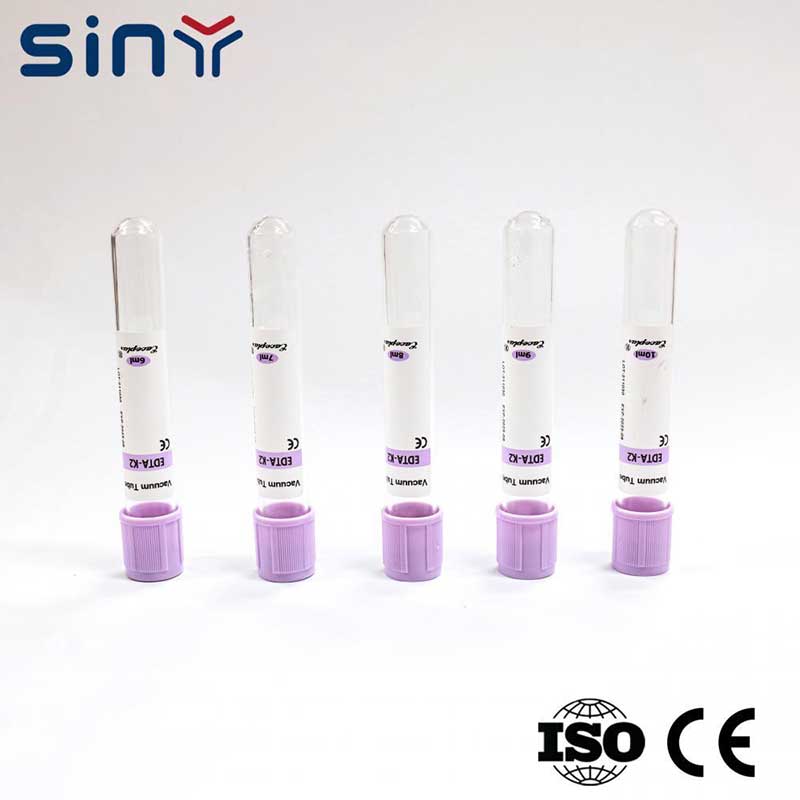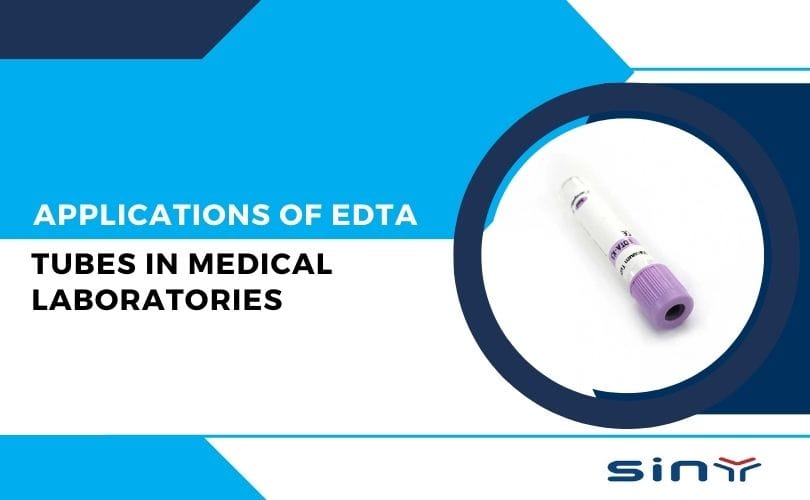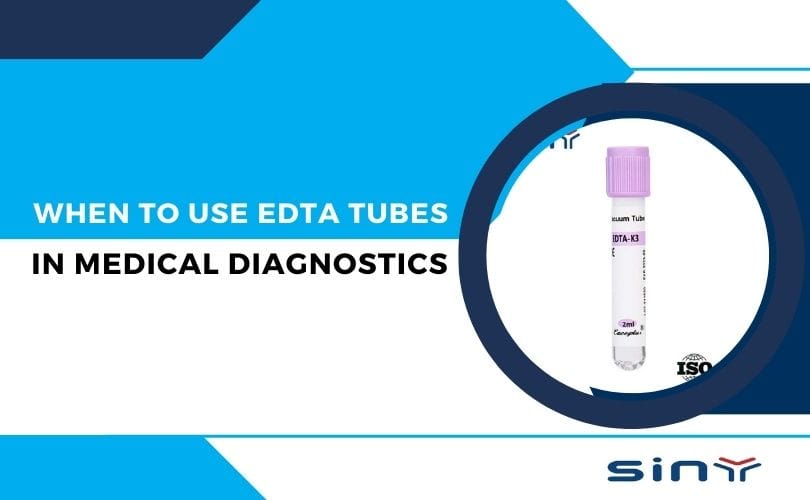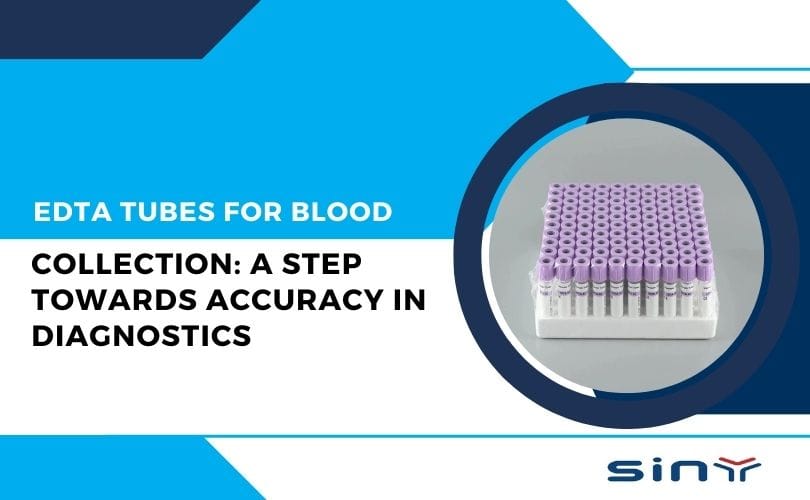EDTA tubes, which contain ethylenediaminetetraacetic acid, are vital tools in medical laboratories, particularly for blood collection and analysis. Their unique properties make them essential for ensuring accurate diagnostic results. Below are the key applications and benefits of using EDTA tubes in medical settings.
What Are EDTA Tubes?
Before jumping into their applications, let’s break down what EDTA tubes are. EDTA stands for Ethylenediaminetetraacetic Acid, a chelating agent that binds calcium ions in blood samples. This prevents the blood from clotting, making EDTA tubes perfect for haematological studies.
These tubes are widely used in hospitals, diagnostic centres, and research labs for collecting, storing, and transporting blood samples. The vacuum-sealed nature of EDTA tubes ensures contamination-free sampling, which is critical for high-accuracy test results.

Want to know more about EDTA tubes? Check out our product page for details.
Applications of EDTA Tubes in Medical Labs
Hematology Testing
EDTA tubes are the gold standard for haematology tests, including:
- Complete Blood Count (CBC): This standard diagnostic test analyzes red and white blood cells, haemoglobin, and platelets.
- Erythrocyte Sedimentation Rate (ESR): Measuring inflammation in the body requires unclotted blood, making EDTA tubes ideal.
Since EDTA effectively preserves cellular components, these tubes ensure accurate and reliable haematological results.
Molecular Diagnostics
With the rise of genetic testing and advanced diagnostics, EDTA tubes are frequently used for:
- DNA and RNA extraction: EDTA prevents nucleic acid degradation, ensuring sample integrity.
- PCR (Polymerase Chain Reaction): Accurate amplification of genetic material relies on pristine blood samples collected in EDTA tubes.
Looking for EDTA tubes optimized for molecular diagnostics? Explore our product category.
Clinical Biochemistry
Although serum-based samples are standard in biochemistry, EDTA tubes are increasingly used for specialized tests like:
- Enzyme studies that require anticoagulated blood.
- Tests involving trace metals or heavy metals, such as EDTA, minimize metal ion interference.
Blood Banking
EDTA tubes are indispensable in blood banking and transfusion services, where they’re used to:
- Match blood types and identify potential donors.
- Screen for infectious diseases using blood samples.
Immunohematology
In immunohematology, EDTA tubes play a critical role in:
- Crossmatching blood for transfusions.
- Detecting and analyzing antibodies or antigens in blood samples.
Why EDTA Tubes Are a Preferred Choice
Medical laboratories prefer EDTA tubes because they:
- Preserve cellular integrity: EDTA ensures that red and white blood cells remain intact.
- Prevent clotting: The chelating action keeps the sample anticoagulated for testing.
- Are contamination-free: Their vacuum-sealed design minimizes external contamination.
- Offer versatility: Suitable for a wide range of diagnostic applications.
EDTA Tubes vs. Other Blood Collection Tubes
Why are EDTA tubes better than other options? Let’s compare them briefly:
| Tube Type | Anticoagulant | Key Use | Advantages |
|---|---|---|---|
| EDTA Tubes | EDTA | Hematology, molecular testing | Preserves cellular components, prevents clotting |
| Citrate Tubes | Sodium Citrate | Coagulation studies | Best for clotting factor tests |
| Heparin Tubes | Heparin | Biochemistry, pH studies | Ideal for enzymatic studies |
| Serum Tubes | None (clot activator) | Serology, general biochemistry | Yields serum for analysis |
Best Practices for Using EDTA Tubes
To get the best results, always follow these tips:
- Proper Mixing: Gently invert the tube 8–10 times to mix the blood with the EDTA anticoagulant.
- Avoid Hemolysis: Use the correct needle size and avoid vigorous shaking to prevent red blood cell damage.
- Storage Conditions: Store samples at the recommended temperature to maintain sample integrity.
- Timely Processing: Analyze samples promptly to ensure accuracy.
For more product-specific guidelines, visit Sinymedical’s EDTA Tube.
Why Choose Sinymedical EDTA Tubes?
When it comes to blood collection, quality matters. Healthcare professionals trust Sinymedical’s EDTA tubes for their:
- Consistent quality: Manufactured under strict quality control protocols.
- User-friendly design: Easy-to-use tubes with clear labelling and colour-coded caps.
- Affordable pricing: Offering premium-quality products without breaking the bank.
Want to learn more about our brand? Head over to our Sinymedical.
Wrapping It All Up
EDTA tubes are a cornerstone of medical laboratories, enabling accurate haematology, molecular diagnostics, and immunohematology results. From preserving cellular integrity to preventing clotting, these tubes are indispensable in the field of healthcare.
Whether you’re a healthcare professional or a lab technician, choosing high-quality EDTA tubes like those from Sinymedical ensures reliable and consistent performance.
Explore our product page to find the perfect solution for your lab needs today!
FAQs EDTA Tubes
Are EDTA tubes suitable for glucose testing?
Not usually. EDTA tubes are mainly for hematology and molecular diagnostics. For glucose tests, fluoride tubes are recommended.
How long can blood remain stable in an EDTA tube?
Blood samples in EDTA tubes remain stable for up to 24 hours at room temperature. However, refrigeration can extend stability for certain tests.
Can EDTA tubes be reused?
No. EDTA tubes are designed for single use to ensure sterility and accurate results.
What’s the color of EDTA tube caps?
EDTA tubes generally have lavender or purple caps, which are universally recognized for hematology use.
Do EDTA tubes interfere with certain tests?
Yes. EDTA may interfere with calcium, potassium, and magnesium assays due to its chelating properties. Always consult lab protocols.







